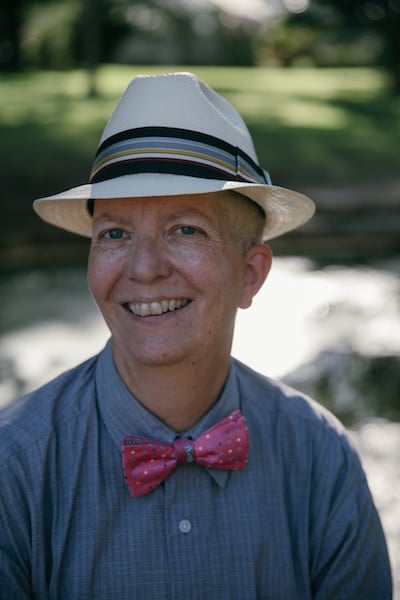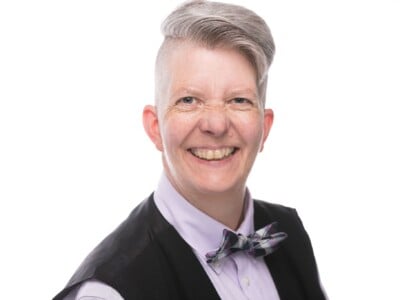
Shane Whalley (MSSW ’03) is the recipient of the 2017 Charles I. Wright Distinguished Alum Award presented by the School of Social Work and its alumni organization, the Social Work Alumni Network (SWAN).
Current position: I am a lecturer in the School of Social Work and I’ve started a consulting business called Daring Dialogues Consulting, which provides training and workshops around LGBTQ, cultural humility and responsiveness, and social justice frameworks. I encourage people to look at themselves and their identities and consider how that interacts with the people they are working with.
Three things you can’t live without: Students, because they keep me vital and current. Community, broadly defined. And nature. If I can’t get outside, I feel weary.
Social work faculty who informed your practice: I was very fortunate to have many powerful teachers who came and shared their field experiences and social work knowledge. Dr. Darlene Grant taught the foundations of social justice course and then hired me as her teaching assistant. When I took the course initially, I was very concentrated on the material. As her TA, I got to really watch her in the classroom, and then later I got to teach the class, so all those layers of experience played out. She was someone who asked students to take risks around their own identities, so I think a lot of how I teach is influenced by her. I also co-taught a course with Dr. Yolanda Padilla, and Kathy Armenta has stayed a friend and mentor. So I had three incredible mentors that launched me forward.
Memory from field: I did my field placement at Out Youth from 2001-2002. In 2006 I returned as their clinical director (I go back to a lot of places). I did my final field at SafePlace because I wanted to challenge myself and do something outside of my comfort zone. The thing I appreciated the most was that I had a lot of support at my organization and from the School of Social Work, so I felt like if I made a mistake, it would be survivable.I went to Out Youth’s prom—so many queer kids can’t go to their high school prom with their date—in a tux and a bow tie, and I also brought a sequined gown and hose and a curly long wig and sang “I Feel Pretty” for the students. It was great to do serious work but also be playful and serve as a role model for them of what it could be like to grow up and thrive.
On being a graduate student at UT Austin: I always tell students “If there’s something you feel is missing, build it.” When I got here there was not LGBTQ student group, so I started one. I enjoyed being active in many different communities. One of my favorite memories is when, during my second year, my cohort got together after a happy hour and after four of us auditioned for The Vagina Monologues. Kathy Armenta, myself and one other member of my cohort were cast in the production.
Most used practice skill: Professional use of self. I’m a storyteller. When I teach I try to bring my full humanity into the room, which is risky and important. I ask students and workshop participants to bring their full authentic selves into the room, to have compassion for themselves and others, and to engage in survivable risk. These are my three pillars, and I strive to live them everywhere I go.
Advice for social work students and activists: Social work gave me language and context for a lot of things that were true to my practice as a human, and that gave me self-confidence. I came to this program not trusting myself, my skills, or my abilities. When people asked me why I wanted to get a graduate degree at 40, I told them “I want to be a full time social justice educator, especially in LGBTQ issues.” To a person, people looked at me and said “we are so glad you’re here” and supported my goals. That had happened nowhere else in my life. I think the greatest gift this program can give students is a strong professional sense of self. I advise social workers to focus on finding the things that bring them joy, that give them energy, and make positive change.
By Laura Thain.


